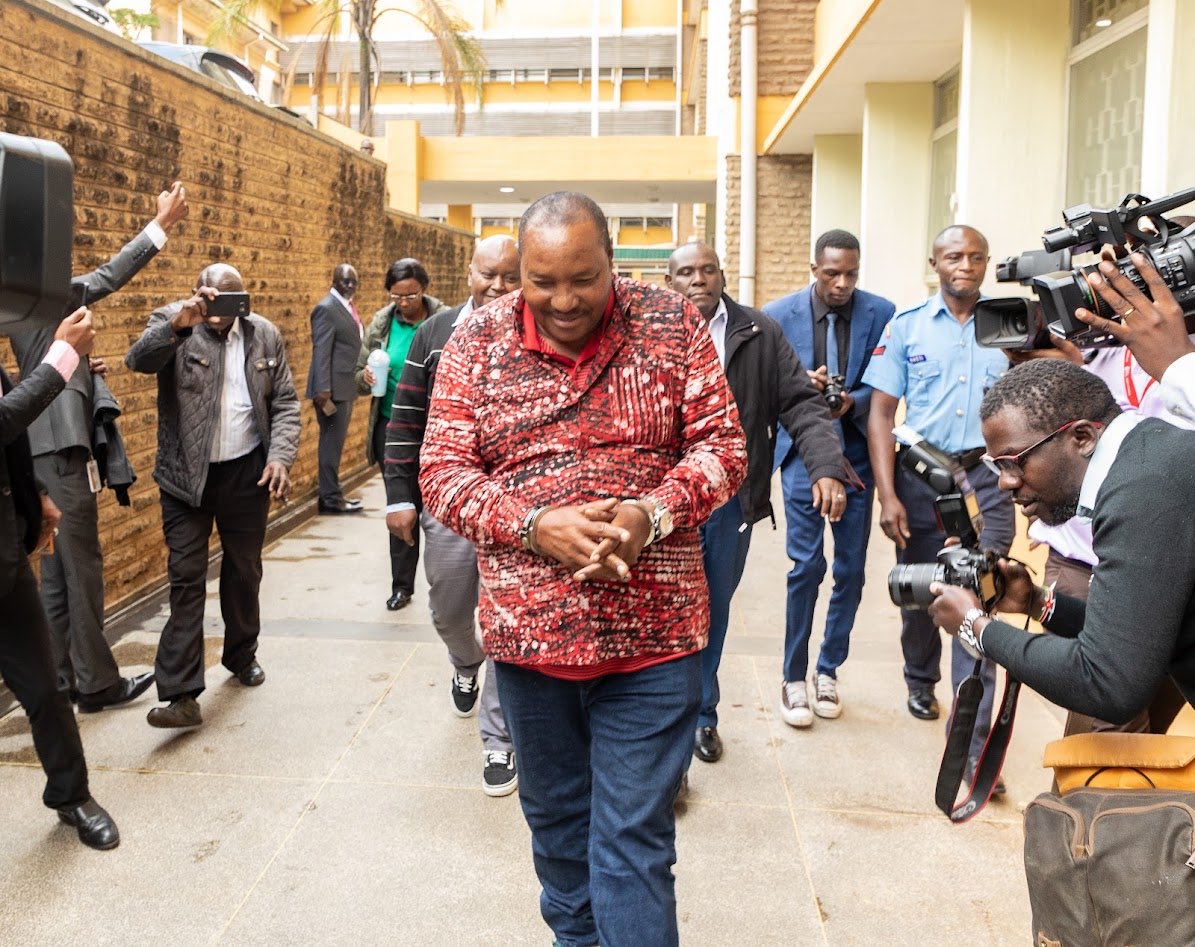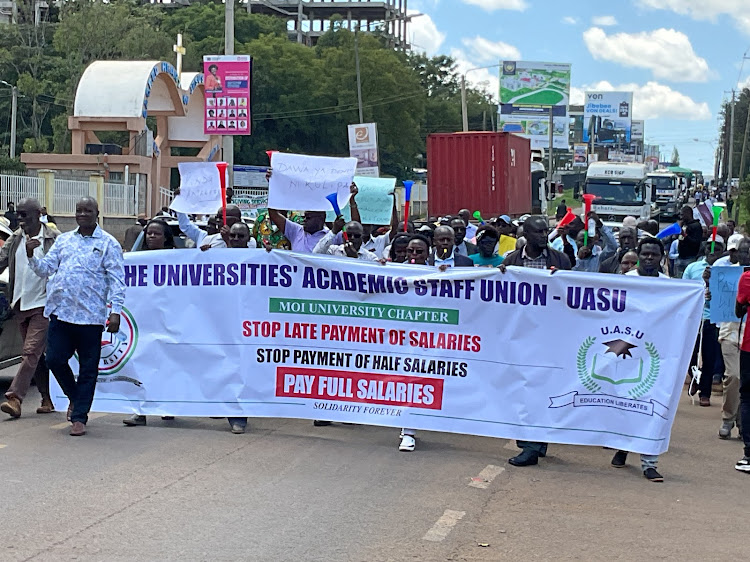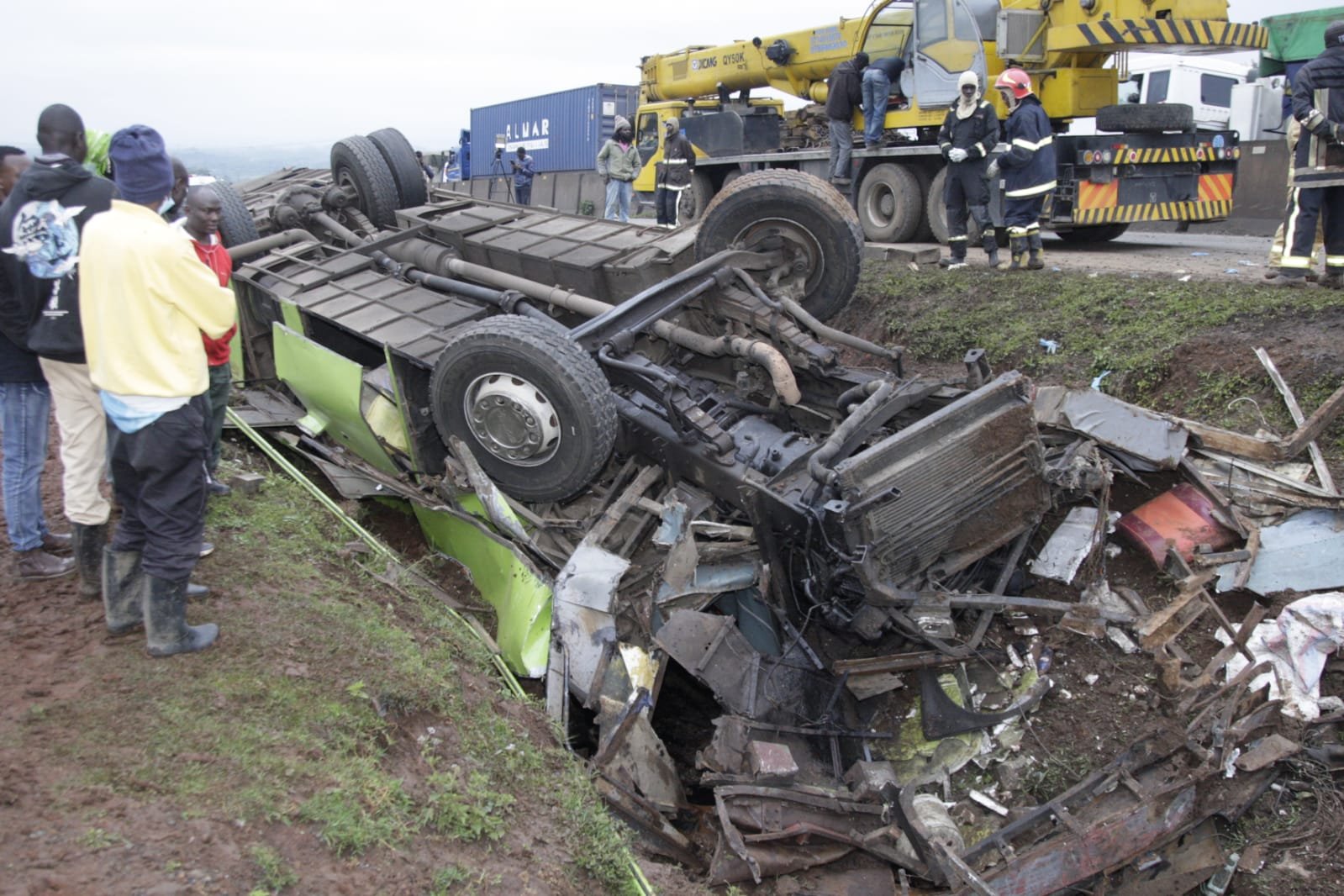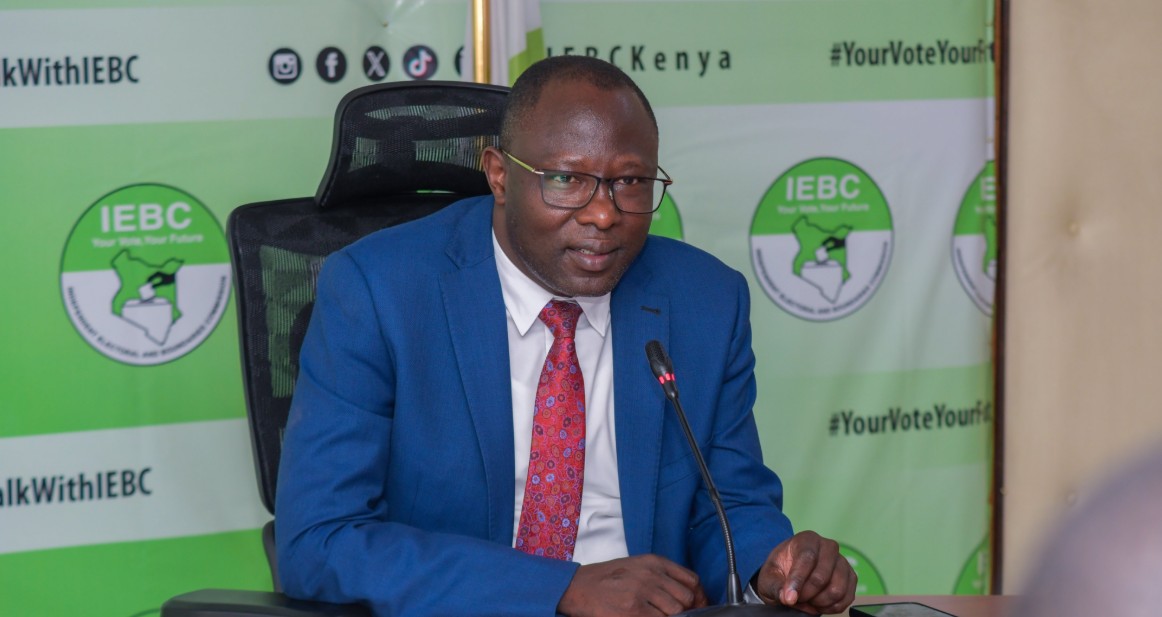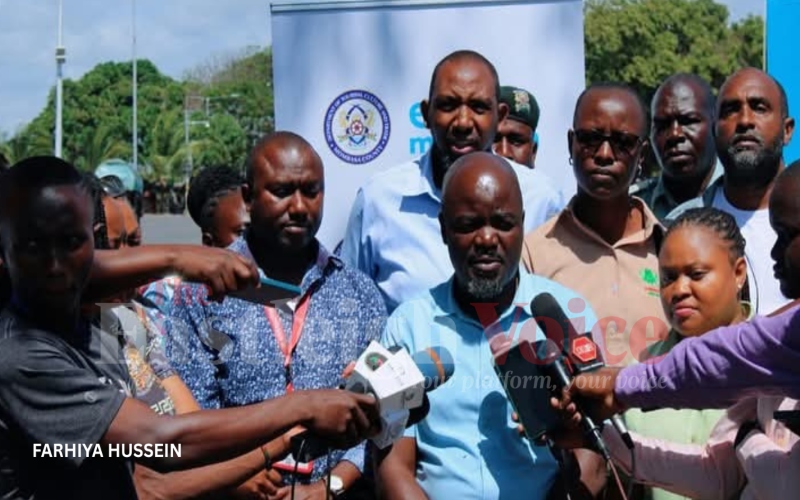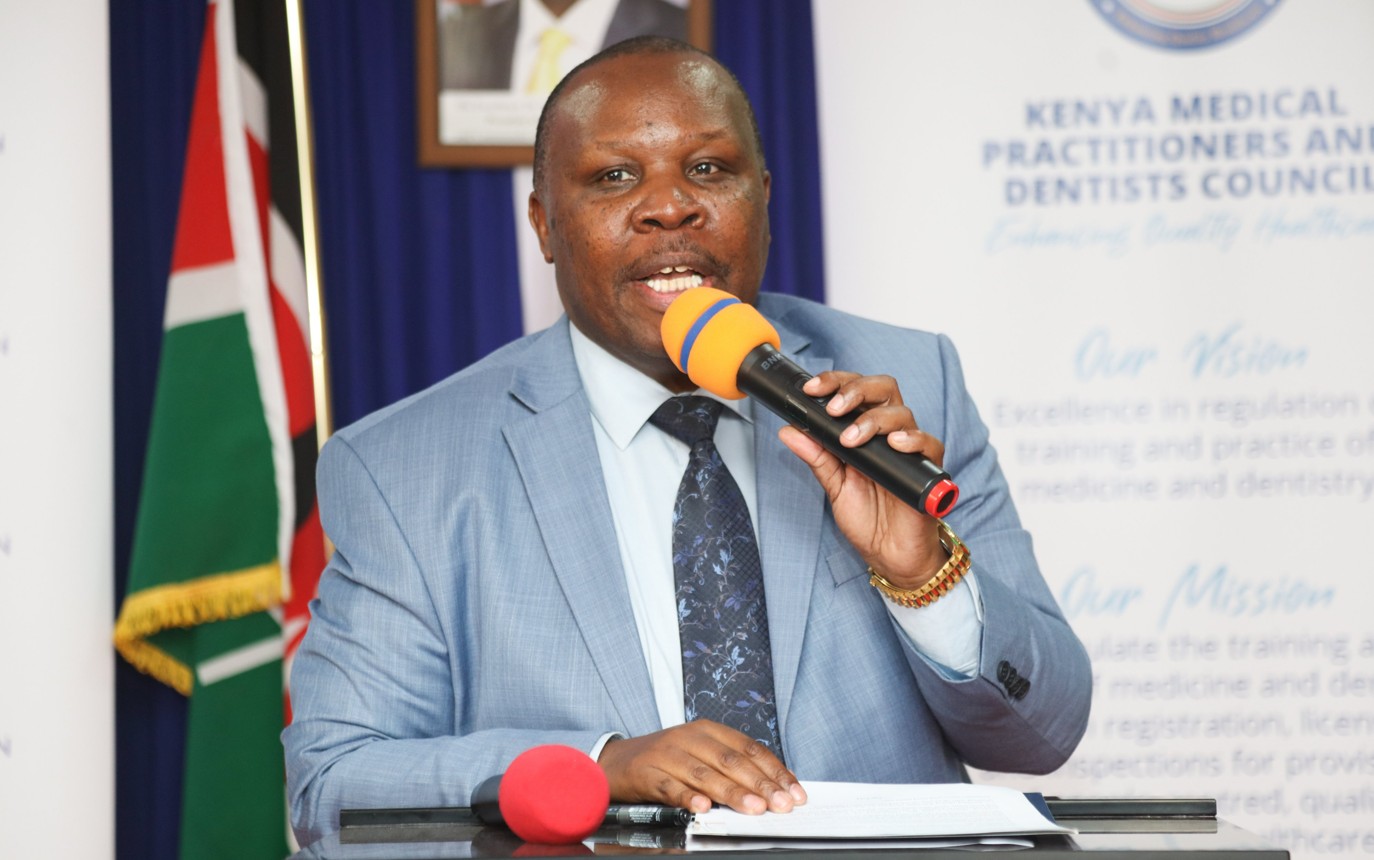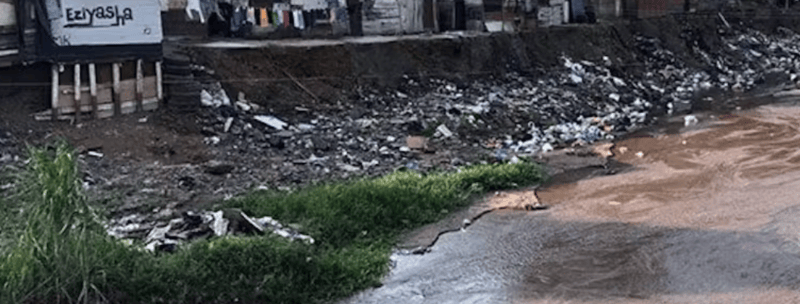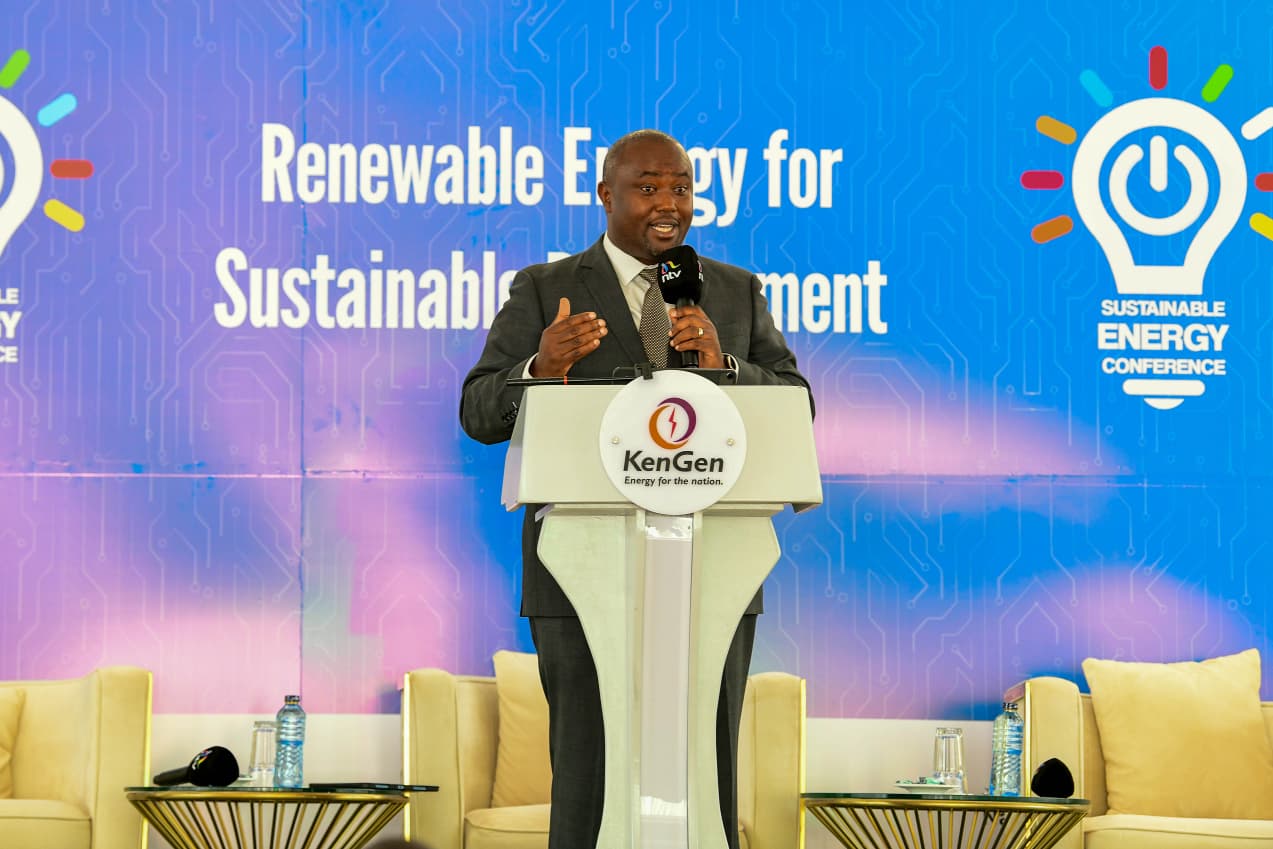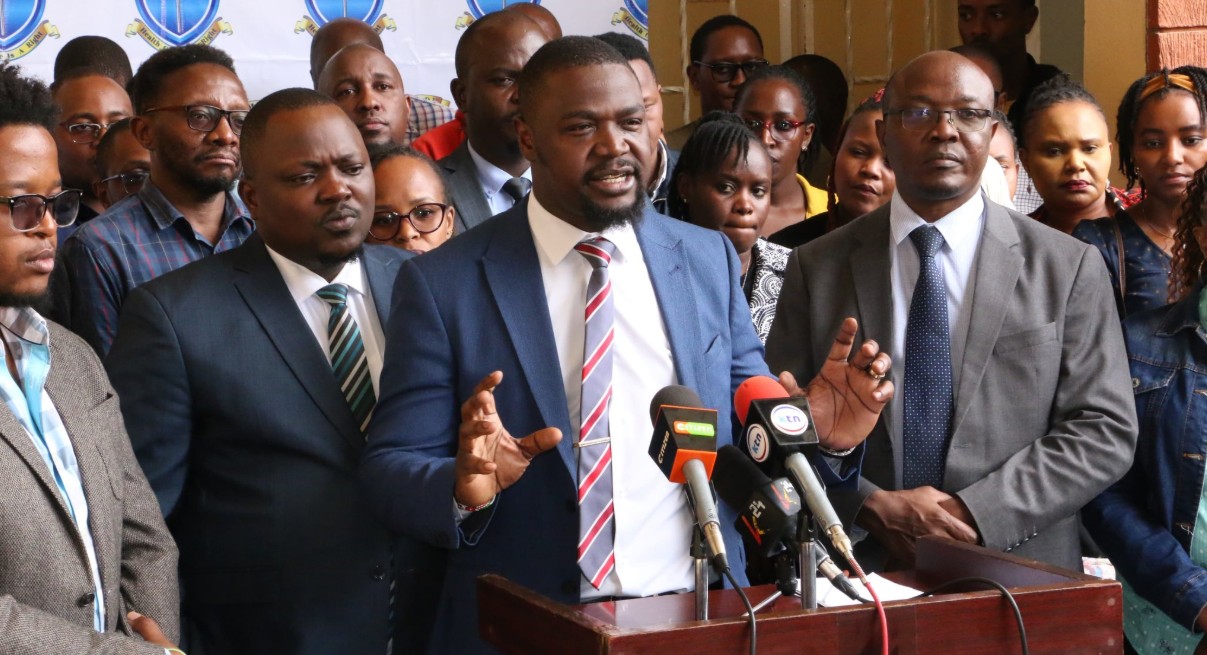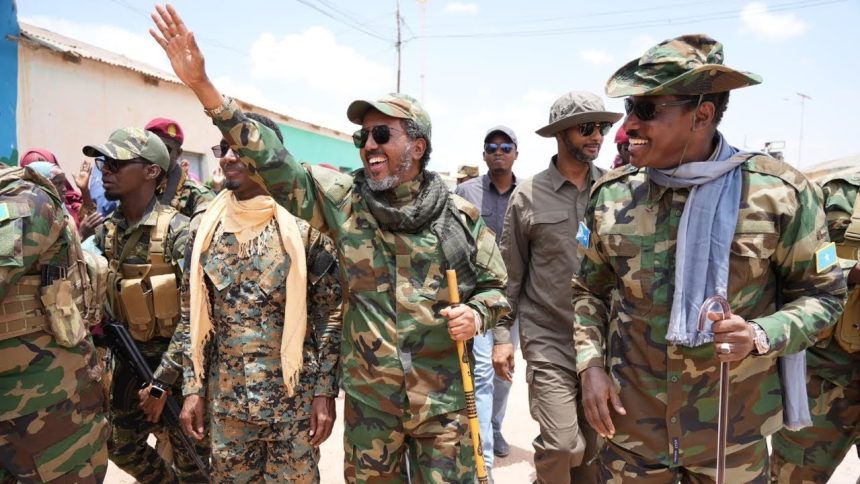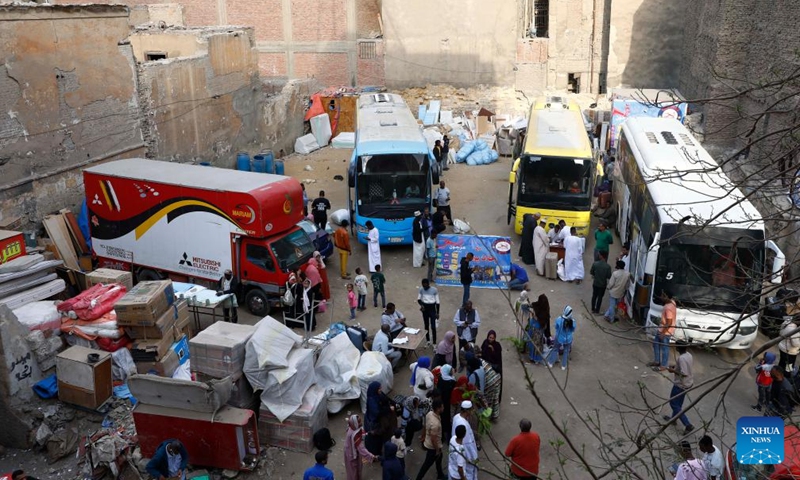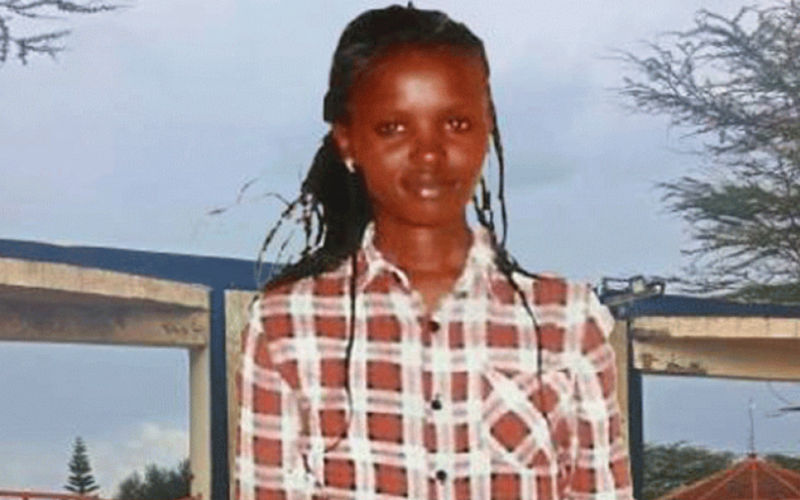Rogue cop kills 19-year-old Ibrahim Wanjiku, cuts short his engineering dream
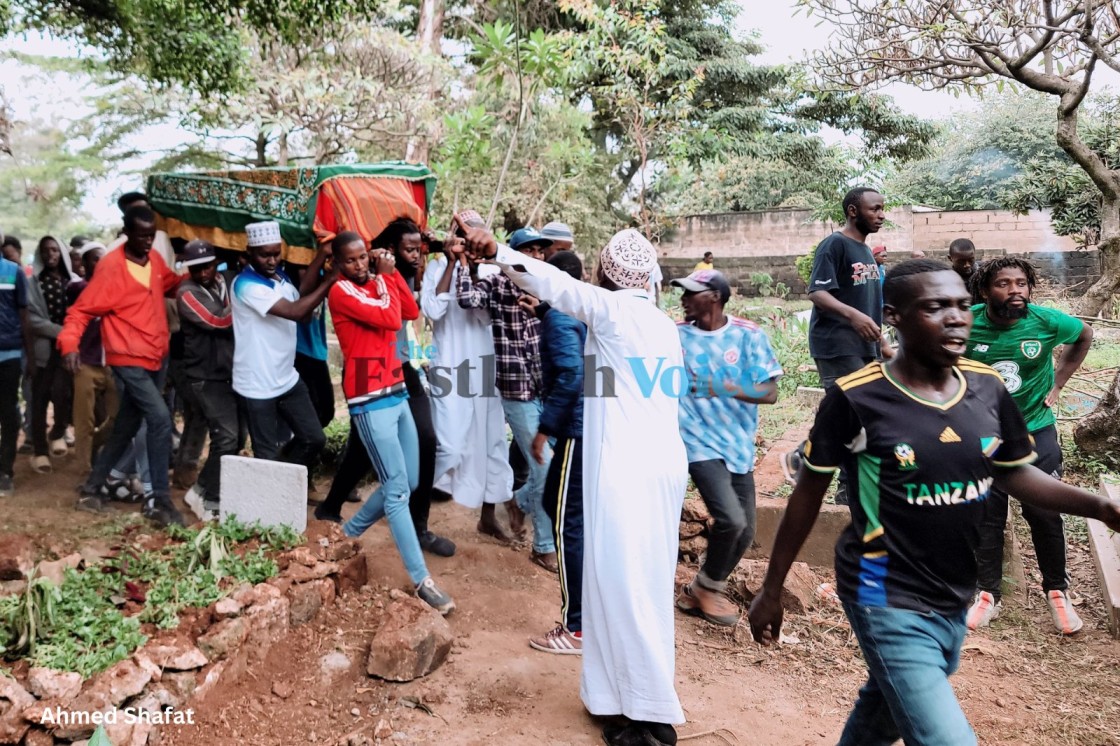
Yusuf Hassan, Member of Parliament for Kamukunji, who attended Ibrahim's burial, condemned the killing and highlighted that protests are a constitutional right.
"I felt so much pain when I saw my son lying in the mortuary. Why kill someone who is peacefully protesting?" With tearful eyes and a heart heavy with grief, Edith Wanjiku wonders as she says a final farewell to her 19-year-old son, Ibrahim Wanjiku, who was laid to rest in Biafra Estate in Kamukunji Constituency.
Ibrahim was gunned down by a rogue police officer during the Anti-Finance Bill demonstration dubbed Occupy Parliament in Nairobi on Tuesday, June 25.
More To Read
- There was a second attempt to invade Parliament, says Interior CS Kindiki
- Human rights groups: Police lacked clear command during June 25 protests
- Withdrawn Finance Bill tops MPs list as they return from recess
- You're playing with fire! - Museveni warns Uganda anti-corruption protesters
- Enough is enough! - Ruto tells Gen Z’s amid heated protests
- One killed as Kenyan anti-government protests intensify again
The pain of losing her child is overwhelming, leaving her shattered and desolate, and this is evident in her voice.
"I'm deeply pained that my son was brutally murdered, with two gunshot wounds on his neck," Wanjiku says, gasping for air, her voice trembling with raw emotion.
What happened?
Ibrahim Wanjiku, a teenager from Biafra Estate in Kamukunji Constituency, had big dreams. He was saving up to study electrical engineering in college, hoping to build a bright future for himself. But those dreams were tragically cut short
His mother, Edith Wanjiku, is now left to grapple with unimaginable grief while recalling that her son died in his first-ever demonstration.
On Monday, the bereaved mother spent time with her son, a boda boda rider, before he left to fend for himself.
"He came home on Monday evening, ate, and then left to continue with his business. I became alarmed when we couldn't reach him on the phone on Tuesday after his peers had returned from the protest. We searched for him until midnight, but to no avail,” she tells the Eastleigh Voice.
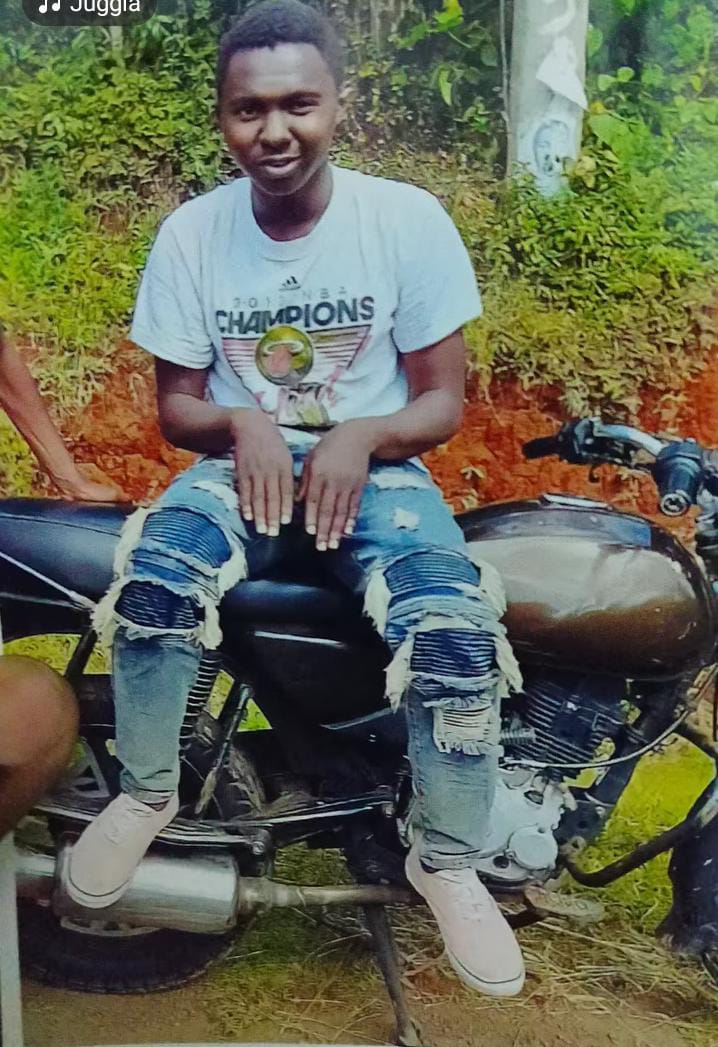 19-year-old Ibrahim Kamau Wanjiku was shot twice in the neck during the Tuesday, June 25, 2024, protests. (Photo Courtesy)
19-year-old Ibrahim Kamau Wanjiku was shot twice in the neck during the Tuesday, June 25, 2024, protests. (Photo Courtesy)Ibrahim Kamau Wanjiku, a 19-year-old who was shot twice in the neck during the Tuesday, June 25, 2024, protests was laid to rest at Karioko Cemetery on Friday, June 28, 2024. (Photo Ahmed Shafat)
Their search led them to different hospitals, hoping for any sign of the promising young man. Finally, their worst fears were confirmed at the City Mortuary, where his body was lying, with bullet wounds evident in his neck.
"I never imagined this could happen to my son. It's a hard moment for us as a family. Now he's gone."
Wanjiku is only left with memories of her son, who aspired to become an electrical engineer and change her life.
After Ibrahim finished Form Four, Wanjiku couldn't afford to send him to college. The mother and son agreed to save money together to fund his education in a country where the cost of school fees is soaring year by year, despite the government having promised to reduce it during the campaigns.
Ibrahim worked as a boda boda operator in Eastleigh and had even opened a bank account, saving a substantial amount. Little did he know that he would never see his dream come true.
On the now-historic Tuesday, June 25, he left home with his friends to join the demonstration primarily organised by Generation Z youth.
His friend, Felix Ndamwa, 21, recounts the last moments of the day, saying, "We went to the demonstration with just our phones. At some point, we got hungry and went for a snack. After recharging, we returned to the protest."
"We went to the front line, and then live bullets were fired and tear gas was deployed. That’s when we lost touch, as everyone was running around," Ndamwa says. After the protest, Ndamwa and his friends went home but grew alarmed when Ibrahim's mother came looking for him at the Boda Boda stage in Eastleigh. With no sign of their friend, they continued the search the next day, only to find him at the mortuary.
"Seeing my friend in that condition has been very traumatising. I feel shaken and afraid since I was with him at the protest, and now he's gone," says Ndamwa.
Ibrahim's older sister, Hafswa Wanjiku, 22, is equally devastated due to the loss, which has left the family shattered and unsure of how to face the heartbreak and grief.
"When I heard about my brother's death, I was in shock and even had an accident. My brother was murdered brutally, with two bullets piercing his neck from one end to the other," recounts Hafswa.
"It's so sad that my brother lost his life. I will never see him again. At least if he were in the hospital or jail, there would be hope. But now, there is no more hope. Despite being young, he had dreams and was saving up for school. Now, all that is gone, and we will never see him again," she adds.
Ibrahim Kamau Wanjiku was laid to rest today at the Kariokor Cemetery after days of delay at the mortuary. The grandmother, Nancy Njurah, however, says that the family had to battle for his body as City Mortuary had declined to release it, adding more pain to their sorrow.
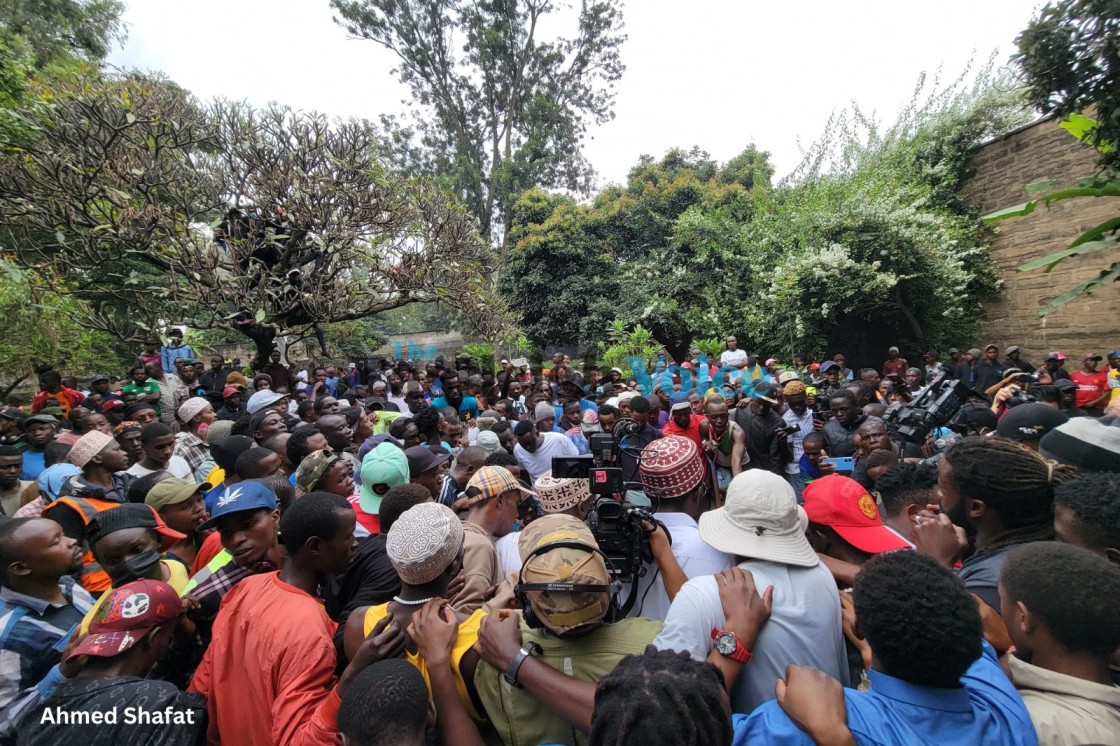 Ibrahim Kamau Wanjiku, a 19-year-old who was shot twice in the neck during the Tuesday, June 25, 2024, protests was laid to rest at Karioko Cemetery on Friday, June 28, 2024. (Photo: Ahmed Shafat)
Ibrahim Kamau Wanjiku, a 19-year-old who was shot twice in the neck during the Tuesday, June 25, 2024, protests was laid to rest at Karioko Cemetery on Friday, June 28, 2024. (Photo: Ahmed Shafat)Ibrahim Kamau Wanjiku, a 19-year-old who was shot twice in the neck during the Tuesday, June 25, 2024, protests was laid to rest at Karioko Cemetery on Friday, June 28, 2024. (Photo: Ahmed Shafat)
"When we saw the body of our child, it was incredibly painful. The worst part was that they refused to give us the body. They kept telling us to go and come back. Despite our repeated requests, the body was only released yesterday at around 4 pm, which delayed the burial according to Islamic rites."
The mother, Edith Wanjiku, appealed to the government to ensure justice is served and the perpetrators are arrested.
Ibrahim Wanjiku was the first victim of the brutal killings during the demonstration to be buried. Yusuf Hassan, Member of Parliament for Kamukunji, who attended Ibrahim's burial, condemned the killing and highlighted that protests are a constitutional right.
"It deeply saddens me that Kamukunji is the first place where we will be burying one of the victims of Tuesday's protest. Ibrahim Kamau, a young and dynamic 19-year-old, was gunned down by the police during a peaceful political protest. I knew him very well."
"Protests are guaranteed and supported by the constitution, which is a fundamental right. It is a criminal act to gun down and kill an innocent, unarmed young man. This is a terrible tragedy, a loss to the family and parents, and it should not happen to anyone else. It is very sad for a father or mother to bury their child," Yusuf, who condoled with the family, stated.
He appealed to the government to respect the constitution and protect young people. "We will seek justice for the victims and their families," Yusuf declared.
The death toll continues to climb, with more protesters sustaining gunshot injuries and undergoing treatment at various hospitals. The Police Reforms Working Group Kenya (PRWG-K) reported a nationwide death toll of 23 from police shootings as of Tuesday evening, one more than the figure recorded by the Kenya National Commission on Human Rights (KNCHR).
During a national address, President William Ruto, however, claimed that only six people had been killed, a statement disputed by PRWG-K. The activists criticised President Ruto for minimising the severity of the tragedy, stating that his assertion aimed to downplay the true extent of the situation.
Top Stories Today

